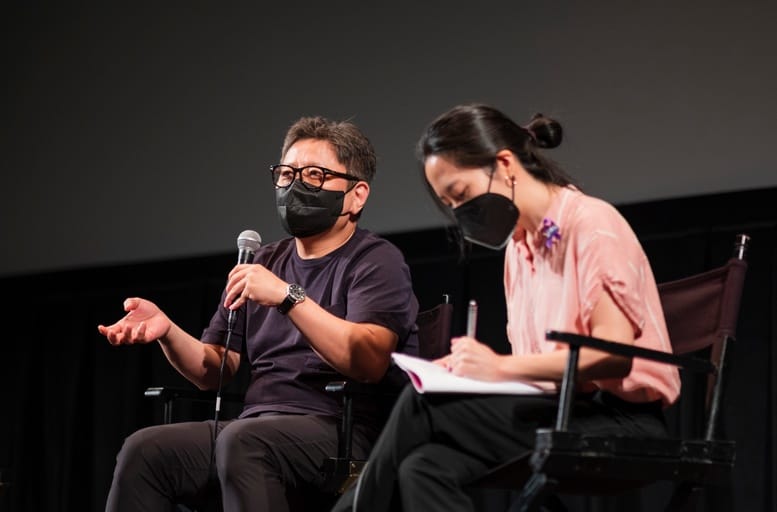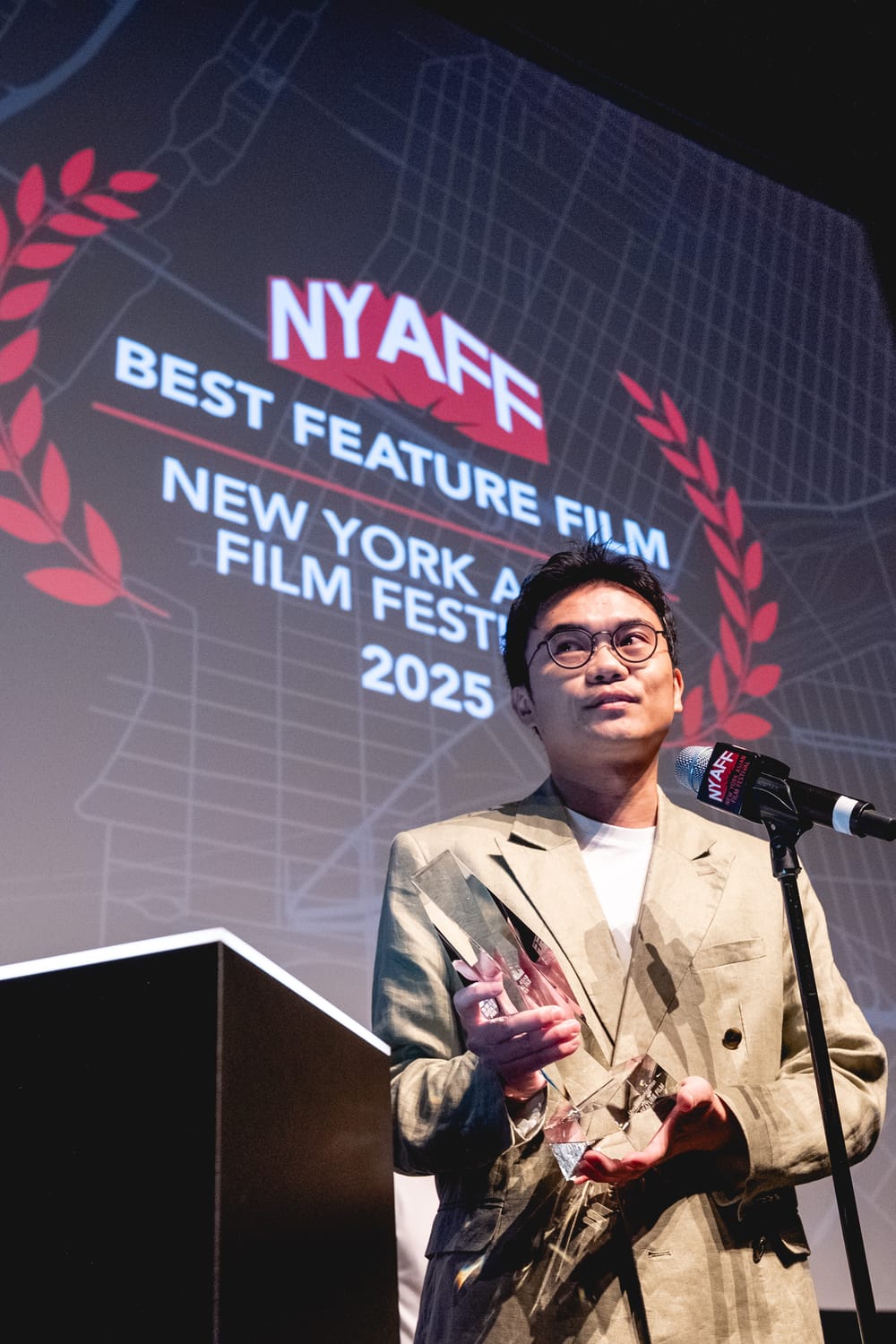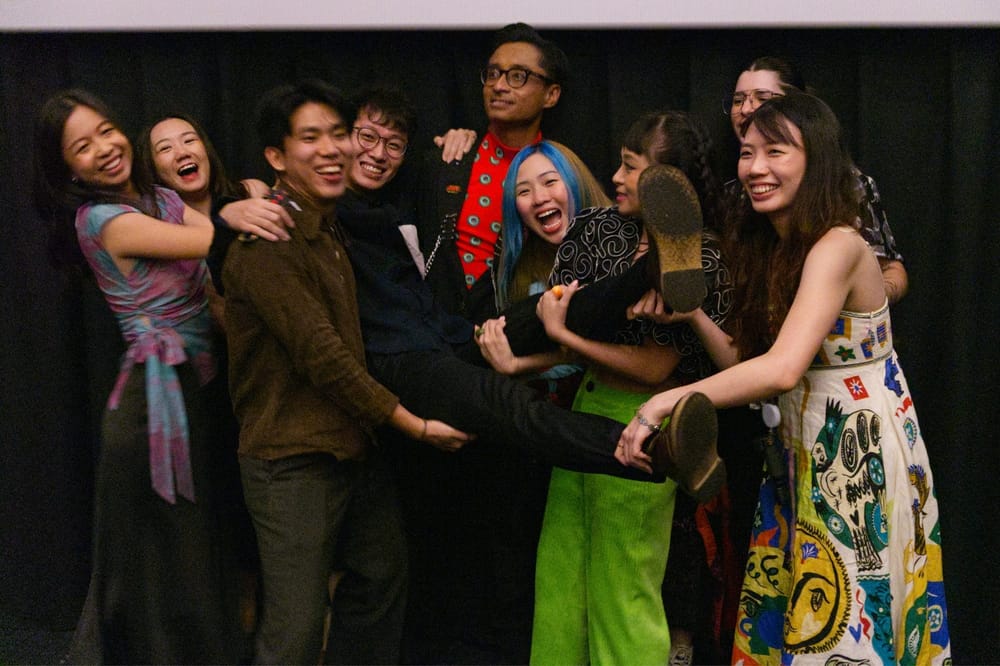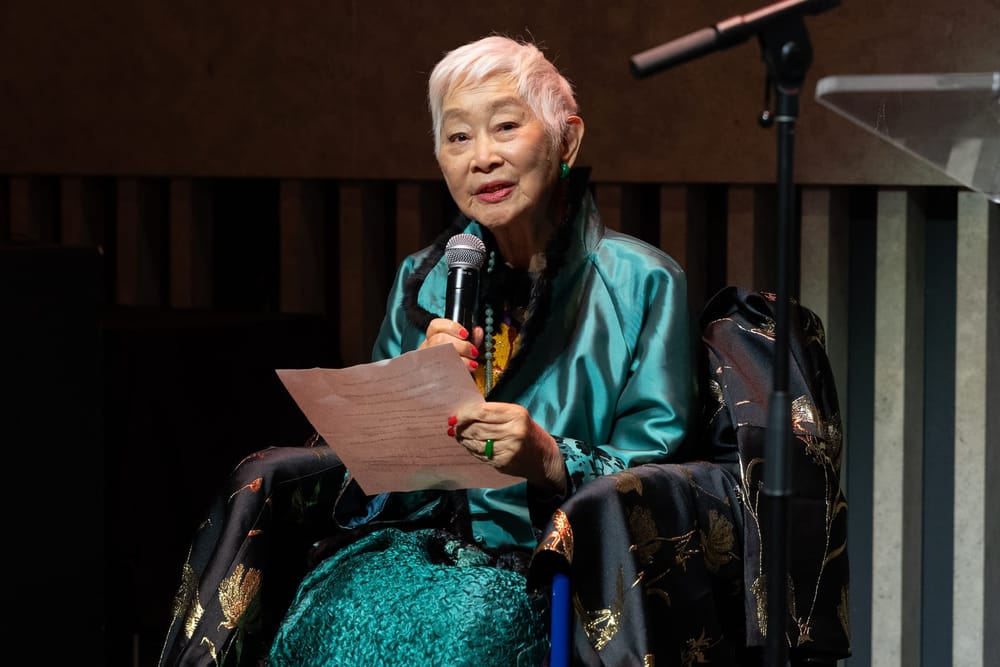With wheels whizzing, fists flying, suits swirling and lights blinking to a bass beat and screamed spurts – of comic fear, or determination – Korean director Kwon Soo-kyung demonstrates a virtuosic ability for choreographing a seamless action sequence in his latest film, Stellar: A Magical Ride. It’s a story whose structure might best be described as orchestral, harmonizing notes of comedy, drama, and an air of the fantastical to compose the film’s core theme: the resounding importance of family. On one hand, the film’s protagonist, Young-bae (Son Ho-jun) finds himself embroiled in the center of a pressure-cooker heist, trying to track down a missing supercar that’s been stashed with drugs to frame him; at the same time, memories from his youth compel Young-bae to confront his relationship to his father, who has recently passed away, leaving behind an inheritance including his old taxicab, a classic 1980 Hyundai Stellar.
What ensues is a tale that’s as warm as it is entertaining, but stays away from becoming too cheesy through embracing a hyperbolic humor that shines brightest when experienced in a theater with a full-audience: wide-eyed hair-raising slapstick produces that special full-bellied response that says, I’m laughing because you’re laughing (or, in this moviegoer’s case: I’m laughing because you can’t stop laughing, too). Kwon Soo-kyung’s no novice to the comedic voice, as demonstrated by his previous to films, Barefoot Ki-bong (2006) and My Annoying Brother (2016), and this third film feels aptly entitled, for the magic of this ride lies in the sprinkling of flashbacks awakening the lasting impact of familial abandonment, of regret, of disappointment, and of guilt. As Young-bae drives, Stellar accompanies him on a journey through laughter and quieter moments of reflection as a search for a lost supercar becomes a search for lost time.
Before the international premiere of Stellar: A Magical Ride, Kwon Soo-kyung took some moments to discuss the inspiration behind telling this time-traveling story, along with his process for achieving a tonal balance in storytelling. The director’s also no stranger to the commercial box-office hit: Stellar was co-written with the screenwriter behind Extreme Job (2019), which was the highest-grossing film ever in South Korea, and the second most-watched in the country. Stellar also stars Heo Sung-tae as a mob-boss antagonist, who also starred as a gangster in the popular series Squid Game, the most-watched Netflix series of all time. Director Kwon also reflects upon the rise of global attention directed towards the Korean film industry today, as a phenomenon that’s been decades in the making. As Kwon explains, what emerges from focusing on concerns within distinctly Korean social and cultural traditions is the aspiration to appeal to audiences universally.
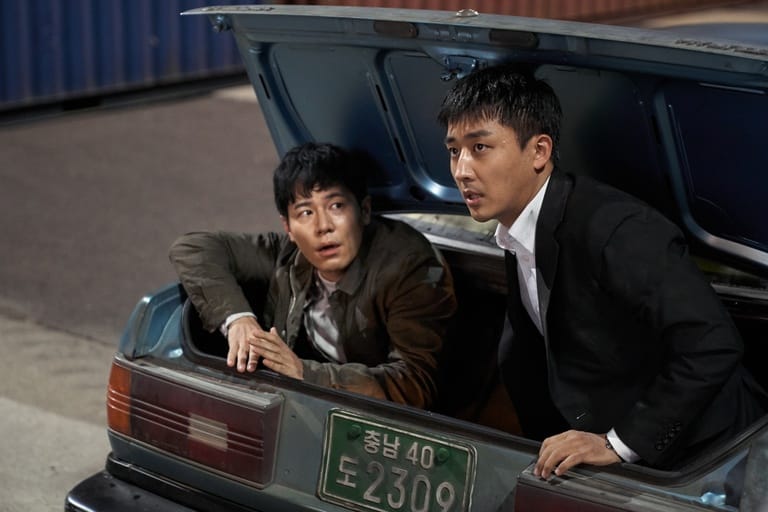
INTERVIEW:
NYAFF (Alexandra Bentzien): My first question has to do with the subject of 80s nostalgia. In recent years, a lot of films and TV series employ references to the 80s, its media and culture. What do you think is driving this desire to step backward into the past and draw from aesthetics nearly 40 years old?
Kwon Soo-kyung (director, Stellar: A Magical Ride): I definitely feel like that is a trend, but this isn’t a trend that is happening just right now. It started a few years ago but it’s definitely become a lot more pronounced. The way I think about it is that, with COVID and inflation, it’s becoming a lot harder to live in Korea, economically and socially. A lot of things are changing and it’s really just difficult to live. That’s triggering people to go back to when times were simpler, when it was not as hard to survive, basically. And I feel like people have that desire to go back to nostalgia, to feel that atmosphere when things at least seemed to be better.
NYAFF: A lot of Korean films have become prominent in the global festival scene in the past years – I’m thinking first of all about Bong Joon-ho’s Parasite, Lee Chang-dong’s Burning. I’m wondering if you as a filmmaker and a director feel a responsibility to comment on the social change that people in Korea, and across the globe, are experiencing right now, or whether your focus is on providing some relief, through comedy and fantasy, in your films.
KWON: I think, as a rule, every director has a thing to say about society and I think all Korean directors, when it comes to Korean films, have a thing to say about Korean society, its shortcomings, or social injustices. I think that is very important. I think one of the main facets of Korean society is that it’s a very rigid and hierarchical system. For me at least, the way to loosen that up and to encourage communication beyond that rigidity is comedy. And also because family is a very important theme in Korean society, I think by combining the themes of comedy with family is a way of bringing about a loosening of that rigid hierarchy, and also bringing about improvement of various social injustice issues.
NYAFF: This film does blend quite a few elements of family drama with family comedy, andbrance the family drama opens up the theme of memory. You have two stories being told simultaneously in Stellar, one that’s happening in the present and one that happens as the main character, Young-bae, thinks back into the past, and into the relationship with his father. What interests you about this idea of using the past as a way to move forward and understand the present?
KWON: I think there are various methods of expression when you talk about the past and the present, but as you can see in Stellar, it belongs in the family area. I think it starts with the communication barrier between father and son, mainly because the father wasn’t there for his son when he most needed him. I think with Stellar in particular, there are protagonists living in the present, but we use Stellar [the car] as a way to get into, or meet, the father of his past. And I think the protagonist [Young-bae] is able to gather up the courage to actually reflect back on that relationship through this literal vehicle of the past.
NYAFF: Is that why you chose a car, to literally articulate the possibility for someone to be carried back and forth through past and present?
KWON: I would definitely say that is what I intended. Especially for Koreans, because a car is very symbolic, it’s an important means for survival but also a symbol of economic success. For the protagonist, Stellar – the car – actually equals his father. As we see in the film, he expresses his frustrations through the car, but as he’s driving the car, he’s literally moving through time and having a dialogue with his dad.
NYAFF: Through dialogue with Stellar, he might be able to embrace his past, or come to terms with it. Do you think Young-bae can actually understand his past, or at least accept it?
KWON: Very precise, very precise understanding! (laughs) Even though he has an understanding of the past, he still has things he wants to say to his dad, and there’s still a desire for a conversation and dialogue with his father, and also to be with him.
NYAFF: As mentioned before, you blend in this film elements of comedy, of drama, and also of fantasy, with Stellar the car – how do you achieve a balance for all of this?
KWON: That was actually one of the key questions when making this film, to find the right balance between all of the facets I was trying to express. The thing that was most important was to figure out where each thing would be placed – where would the drama element work, and the fantasy element, and the comedy element. And I think that really came together in the editing. Even if we were out of sequence scriptwise, in the editing, if we thought that something would work better in a different place, we would keep jumping back and forth to find the right placement for each element – so I would say editing was crucial in finding that balance, as well as the sound effects and the music that accompany everything.
NYAFF: Right, I noticed that you employ various techniques to tell this story, dialogue as well as music, and quick visual cuts. Actually, sometimes I was reminded of a music video, especially during the action sequences. I’m wondering how you discovered your own sense of timing, how you discovered a rhythm.
KWON: We definitely had an overall picture that we were going for in our stages of pre-production, but like you said, I definitely feel rhythm and tempo are the most important things that I think about when filming and editing. For example, in one of the action sequences, there’s a song from the Korean group Deux, back from the 90s; it’s not a sophisticated song, but it worked with that scene because, as you know, the action scenes aren’t sophisticated fight scenes. They’re very slapstick, it’s like very rough action, and because of that, I felt that worked with a retro song. So those two elements together, I think that also makes up the rhythm and the tempo. I was also thinking of differentiating between the dramatic parts of the film and the faster action parts of the film. For action, as we know, the tempo needs to accelerate, so there’s more cuts in it; for drama, the cuts are looser. That’s what influenced my thinking, in terms of rhythm and tempo.
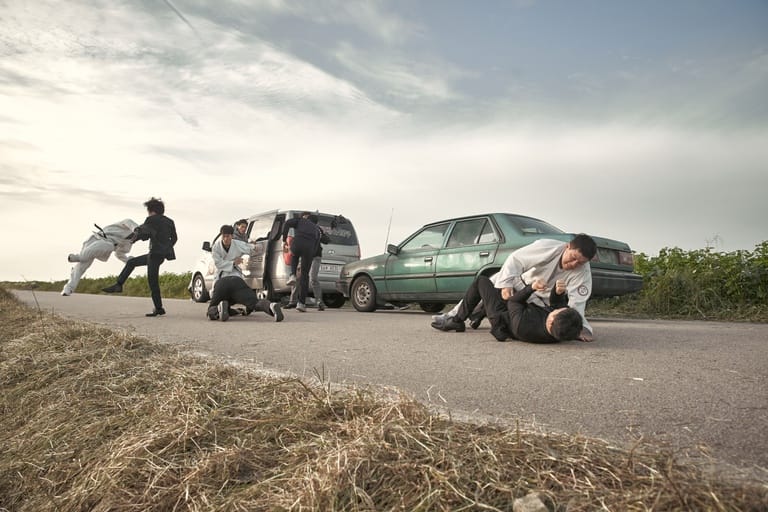
NYAFF: I understand that you have a background in commercial filmmaking as well as in Korean literature. To what extent does this experience in these two fields inform your creative process as a filmmaker of feature films?
KWON: Sounds like you did a lot of sleuthing (laughs). But absolutely, because I started out as a commercial director, I do have a tendency for faster cuts, because you have to grab an audience’s attention in ten to fifteen seconds or less. So I definitely do feel like there is a tendency for me to go faster with the cuts in my editing. And for this film, since I wrote the script as well, my background in studying Korean literature definitely came in handy when writing..
NYAFF: So I have one final question, and this has to do with the Korean film landscape today. There’s been a lot of global interest in Korean music –
KWON: K-Pop, BTS.
NYAFF: Yes, and in Korean TV shows, Korean films; the success of Squid Game last year was a very major achievement. What’s it like to experience this increased interest in Korean culture and media as a filmmaker working within the industry, in Korea?
KWON: I want to start off by saying that it may seem like the popularity of Korean culture is sudden, but I do want to say that it hasn’t come out of nowhere. This isn’t a sudden phenomenon; this has been in the making since the early 2000s. We’ve been creating and have kept going with our efforts for twenty, thirty years. For us, we abide by the saying, “What is most Korean is most universal.” I feel like that is absolutely right. For example, in Squid Game, the whole concept comes from actual children’s games that are played in Korea; you can think of them as very specific Korean games, but right now it’s become a global phenomenon. Yeah, I think this trend, or this phenomenon, has come about as the result of very continuous efforts and hard work.
NYAFF: Can you recommend some Korean films for our audience?
KWON: Can it be an older film?
NYAFF: Sure, of course.
KWON: Ohhh. Sorry, I’m put on the spot! (laughs) Why is this so hard?
NYAFF: This happens to me too! Whenever someone asks me to recommend a film, it’s like I’ve suddenly never seen a film before.
KWON: Same, same. Well, I’m just a little worried because I’m not sure how to get your hands on a print. It’s a film made in 1960, and it’s called The Housemaid.
NYAFF: By Kim Ki-young?
KWON: OH! Yes! Yes! That’s the one! Oh my gosh, have you seen it!
NYAFF: Yes, I’ve seen it!
KWON: Wow! (laughs) Where?
NYAFF: The internet….
KWON: Ah, the internet. Ok. Well, as a Korean director, I’ve learned so many things just by watching that film. I feel for Korean directors it’s almost like a bible: it’s one of the must-see Korean films. It’s so surprising that it’s actually been seen. Do you know the director Im Kwon-taek?
NYAFF: Not yet….
KWON: There’s a film called Seopyeonje. It came out in 1993, directed by Im Kwon-taek. That’s a beautiful film, one I can highly recommend as well.
NYAFF: Thank you so much for your recommendations, and for your time.
KWON: Thank you. I’m happy to be here.
This interview was conducted by Alexandra Bentzien, in conversation with Kwon Soo-kyung. Estelle Seunghyun Lee translated during the interview on Sunday, July 17, 2022.


